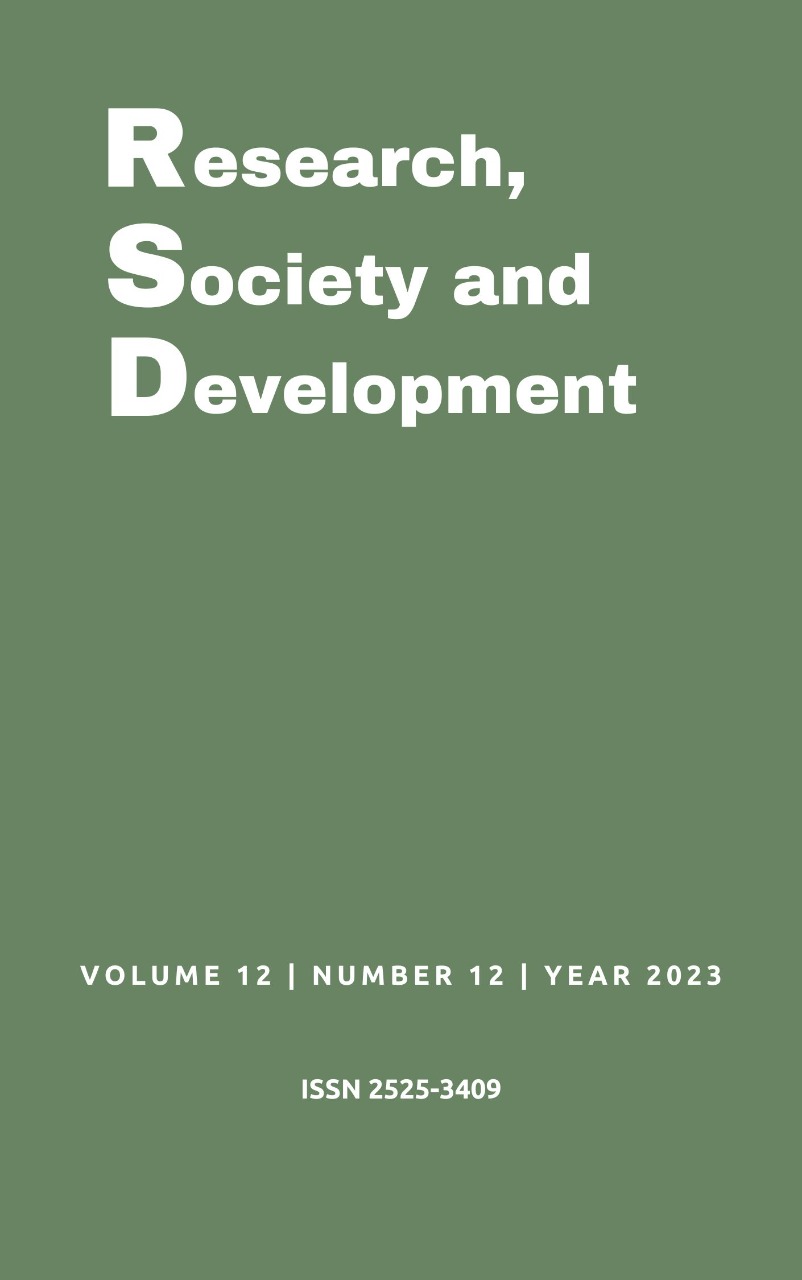Transdisciplinariedad inmersa en cuentos de hadas: La búsqueda de una educación infantil inovadora
DOI:
https://doi.org/10.33448/rsd-v12i12.43868Palabras clave:
Interdisciplinariedad; Transdisciplinariedad; Cuentos de hadas; Educación infantil; Innovación.Resumen
Este artículo es un extracto de la disertación vinculada al Curso de Maestría Profesional en Políticas Públicas y Gestión Educativa, de la Universidad Federal de Santa María (UFSM/RS), de la Línea de Investigación Gestión Pedagógica y Contextos Educativos (LP/2); Como objetivo de este artículo queremos compartir prácticas innovadoras en la gestión del aula: interdisciplinariedad y transdisciplinariedad, específicamente en la práctica pedagógica transdisciplinar en Educación Infantil, a través de los cuentos de hadas. Como pregunta de preocupación, que buscamos responder: ¿Es posible, a través de la interdisciplinariedad y la transdisciplinariedad, integrar diferentes áreas del conocimiento y construir aprendizajes innovadores, desarrollando así una educación integral, basada en los cuentos gauchos? La metodología utilizada fue la investigación cualitativa, realizada a través de narrativas (auto)biográficas, relacionadas con prácticas pedagógicas desarrolladas en una clase de Educación Infantil B, con 19 alumnos de cinco y seis años, de una EMEI de Santa María/RS. A partir de estas experiencias, se le dio un nuevo significado a contar cuentos en Educación Infantil, innovando prácticas pedagógicas interdisciplinarias y transdisciplinarias, en la búsqueda de la formación del Ser Humano integral, a través de actividades que despertaron la creatividad, la ligereza y el encanto de los niños, siendo una experiencia gratificante para los estudiantes y para mí, como educador.
Citas
Abrahão, M. H. M. B. (2016). Intencionalidade, reflexividade, experiência e identidade em pesquisa (auto)biográfica: dimensões epistemo-empíricas em narrativas de formação. In: Bragança, Inês Ferreira de Souza, Abrahão, Maria Helena Menna Barreto, Ferreira, Márcia Santos (org.). Perspectivas epistemo-metodológicas da pesquisa (auto)biográfica. Curitiba: CRV, p. 29-50.
Abrahão, M. H. M. B. (2016). A (re)invenção da personagem - revisitando a história de vida de uma destacada educadora sul-rio-grandense mediante leitura de fontes imagéticas. In: Abrahão, Maria Helena Menna Barreto (org.) Destacados educadores brasileiros: suas histórias, nossa história. EDIPUCRS, p. 263-286.
Bettelheim, B. (1978). A psicanálise dos contos de fadas. Paz e Terra.
Josso, M. C. (2010). Caminhar para si. EDIPUCRS.
Josso, M. C. (2010). Experiências de vida e formação. Cortez.
Josso, M. C. (2020). Histórias de vida e formação: suas funcionalidades em pesquisa, formação e práticas sociais. In: Revista Brasileira de Pesquisa (Auto) Biográfica. Salvador, BIOgraph, 5(13), 40-54.
Menezes, U. G. D. (2021). Literatura Infantil na Educação Infantil: Acervos e Práticas em Instituições. Universidade Federal do Rio Grande do Norte.
Moita, M. C. (1995). Percursos de Formação e de Trans-Formação. In: Nóvoa, A. Vidas de Professores. Porto Editora.
Morin, E, Ciurana, E. R., & Motta, R. D. (2003) Educar na era planetária: o pensamento complexo como método de aprendizagem pelo erro e a incerteza humana. Cortez, Brasília, DF: UNESCO.
Morin, E. (2006). Os Sete Saberes necessários à Educação do Futuro. Cortez: Brasília.
Morin, E. (2020). É hora de mudarmos de via: lições do coronavírus. Bertrand Brasil.
Oliveira, D. E. & Marquezan, L. I. P. (2023). A prática transdisciplinar através dos contos de fadas: a busca por uma educação transformadora. In: Muller, E. Memórias do programa temas emergentes e ensino híbrido [livro eletrônico]: relatos (as) educadores (as) municipais de educação durante o tempo de pandemia. 85-96.
Descargas
Publicado
Cómo citar
Número
Sección
Licencia
Derechos de autor 2023 Denize Estega de Oliveira; Lorena Inês Peterini Marquezan

Esta obra está bajo una licencia internacional Creative Commons Atribución 4.0.
Los autores que publican en esta revista concuerdan con los siguientes términos:
1) Los autores mantienen los derechos de autor y conceden a la revista el derecho de primera publicación, con el trabajo simultáneamente licenciado bajo la Licencia Creative Commons Attribution que permite el compartir el trabajo con reconocimiento de la autoría y publicación inicial en esta revista.
2) Los autores tienen autorización para asumir contratos adicionales por separado, para distribución no exclusiva de la versión del trabajo publicada en esta revista (por ejemplo, publicar en repositorio institucional o como capítulo de libro), con reconocimiento de autoría y publicación inicial en esta revista.
3) Los autores tienen permiso y son estimulados a publicar y distribuir su trabajo en línea (por ejemplo, en repositorios institucionales o en su página personal) a cualquier punto antes o durante el proceso editorial, ya que esto puede generar cambios productivos, así como aumentar el impacto y la cita del trabajo publicado.

